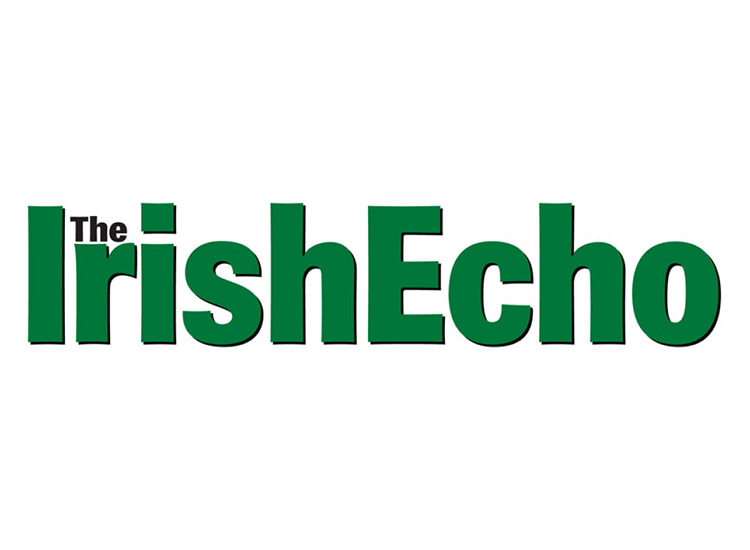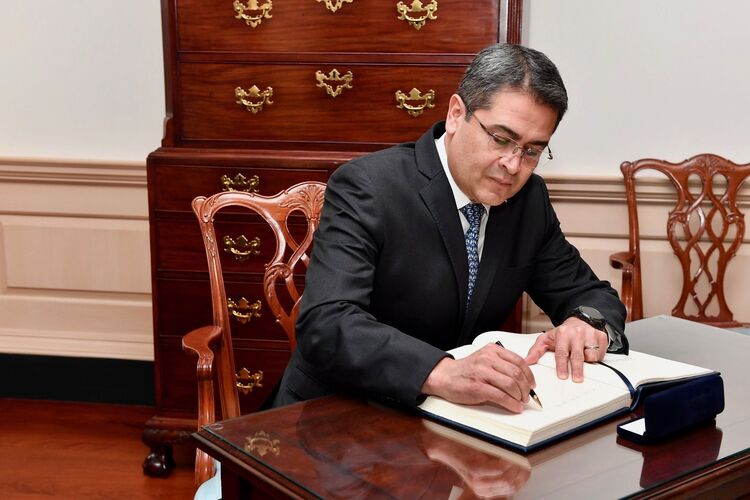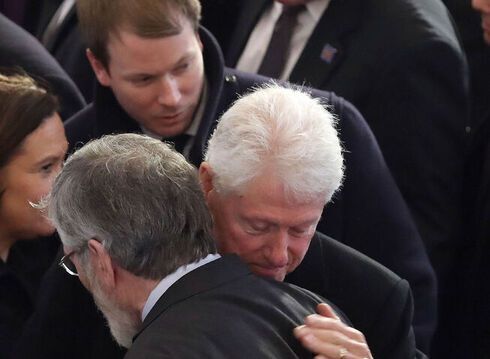Days after the June “Brexit” referendum, Taoiseach Enda Kenny was in Downing Street to meet with British Prime Minister Theresa May. They will be meeting again, this time in Dublin, in the New Year. RollingNews.ie photo.
By Ray O’Hanlon
Tariffs, trade wars, Brexit, possibly soft, but quite likely hard.
2017 is already stacked up to be a year of profound international change.
And that makes for a lot of uncertainty, not least for smaller countries such as Ireland.
As the final days of 2016 fade, already there have been reports that the incoming Trump administration could raise tariffs on imports (See story, Page 7) - this at a time when the U.S. market is increasingly important to Irish exporters.
And the beginning of the Brexit process is certain to profoundly affect the economic outlook for the entire island of Ireland with the Republic staying in the European Union, and Northern Ireland heading for the exit door, albeit unwillingly.
Against this backdrop, the Irish government has called on the British government to clarify its intentions on Brexit, and, according to an Irish Times report, has publicly criticized for the first time the refusal by the British government to outline its objective in the Brexit negotiations.
“The mixed messaging from the UK is a matter of concern,” Irish Foreign Affairs Minister, Charlie Flanagan, said.
“We’re six months from the referendum. We need some clarity as to what the plan is,” Flanagan said in reference to the June, 2016 referendum in which a majority of United Kingdom voters (though not in the North or Scotland) voted to quit the European Union.
In an interview with the Times, Mr. Flanagan said that the mixed messages from the British government were leading to “uncertainty” which was damaging to markets and to business.
“I want to see a plan. After six months we should be moving now from slogans towards having a clarified plan. I don’t see evidence of that, and I find that regrettable,” said Flanagan.
His words will only add to a widespread perception that the British government doesn’t have much of a clue as to how to proceed down the road to Brexit, or has much of an idea of precisely what Brexit will mean for the UK in the short and long terms.
British Prime Minister, Theresa May, is to visit Dublin in the New Year and will be expected to deliver a clearer vision of what she believes will be the state of post-Brexit Irish/British relations, and the relationship between both jurisdictions on the island of Ireland.
That said, May’s control over future events is limited.
It is the European Union that will mostly determine the manner of Brexit, and all that follows.








